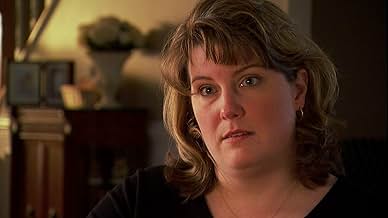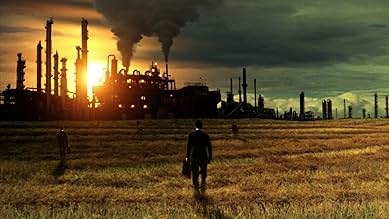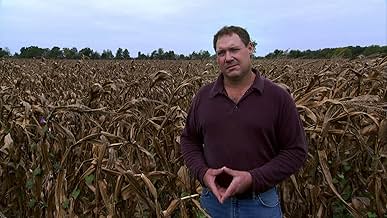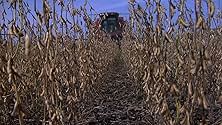An unflattering look inside America's corporate controlled food industry.An unflattering look inside America's corporate controlled food industry.An unflattering look inside America's corporate controlled food industry.
- Director
- Writers
- Stars
- Nominated for 1 Oscar
- 7 wins & 20 nominations total
- Director
- Writers
- All cast & crew
- Production, box office & more at IMDbPro
7.853K
1
2
3
4
5
6
7
8
9
10
Featured reviews
One of the Best Documentaries I have seen in a while, and Canada can learn a lot from this mess....
Did you know that it only takes 48 days for a chicken to go to market. Is this natural? This film explores how food is grown, and the concerns that people have, such as the e-coli outbreak that seems to happen every year. I am a lover of meat, but after this film you will want to change some of your practices like switching to Organic etc. This film also explores demand for certain products that are not Genetically modified.
We all have to eat but we can make decisions based on facts, instead of based on perception. People need to be aware that their consequences may have dire repercussions, so if you need to eat, and we all do, then go out and see this.
We all have to eat but we can make decisions based on facts, instead of based on perception. People need to be aware that their consequences may have dire repercussions, so if you need to eat, and we all do, then go out and see this.
a food monoculture
Robert Kenner's movie is a perfect illustration of F. William Engdahl's book 'Seeds of Destruction', which explains how international agribusinesses are trying to monopolize vertically and horizontally (and profit from) food production on a world scale.
The world's food chain is built mainly on heavily subsidized and, therefore, cheap corn. In fact, all humans chew corn the whole day long from bread over meat (all animals are fed with corn) to deserts and drinks. Transnational corporations are even trying to learn fish to eat corn. Corn becomes nearly a food monoculture. A particular transnational company even developed through genetic engineering highly efficient corn seed which it patented, thereby creating a nearly seed monopoly. Buyers cannot use the produce of the seeds as plant seed for future harvests. The company's own inspection force controls with hawk eyes that its clients buy new genetically modified seed every year. Some of the company's supporters and former directors occupy key positions in US governments and government administrations (FDA).
The movie shows the disastrous effects of intensive farming on animals, as well as the health and environmental risks of diminished standards at livestock farming and slaughtering houses. Fortunately, some biological farmers show more respect for their animals and for their clients.
At the end of the movie, the makers give a perfect list of recommendations for those wishing to eat 'healthy' food.
This movie is a must see for all those who want to understand the world we live in.
The world's food chain is built mainly on heavily subsidized and, therefore, cheap corn. In fact, all humans chew corn the whole day long from bread over meat (all animals are fed with corn) to deserts and drinks. Transnational corporations are even trying to learn fish to eat corn. Corn becomes nearly a food monoculture. A particular transnational company even developed through genetic engineering highly efficient corn seed which it patented, thereby creating a nearly seed monopoly. Buyers cannot use the produce of the seeds as plant seed for future harvests. The company's own inspection force controls with hawk eyes that its clients buy new genetically modified seed every year. Some of the company's supporters and former directors occupy key positions in US governments and government administrations (FDA).
The movie shows the disastrous effects of intensive farming on animals, as well as the health and environmental risks of diminished standards at livestock farming and slaughtering houses. Fortunately, some biological farmers show more respect for their animals and for their clients.
At the end of the movie, the makers give a perfect list of recommendations for those wishing to eat 'healthy' food.
This movie is a must see for all those who want to understand the world we live in.
Careful With That Burger, Eugene
With family run farms pretty much a thing of the past, institutional farming has pretty much taken over,and the dim,dark & dismal effects are omnipresent. There is an epidemic of food borne illness,due to cattle being exposed to over use of steroids to make them grow fatter, faster (and this also includes chickens,pigs,etc.),not to mention GMO corn,grains,etc. Robert Kenner's eye opening film, 'Food,Inc.' manages to shine at least some light on some pretty unethical practices that are being undertaken by corporate owned & managed farms. The likes of Eric Schlosser (author of 'Fast Food Nation',which was made into a semi fictional film a few years back)is featured in interviews,along with Michael Pollan. Many fingers are pointed at guilty parties doing the dirty deeds of the farming industry,along with some pretty unpleasant footage of unethical practices (i.e. abuse of farm animals, although this film doesn't take up any kind of vegetarian/vegan agenda of it's own---the viewer can make up their own mind just what they prefer to eat). Much to my surprise,there is little discussion of the mad cow disease epidemic (or,BSE)from a few years back (only a passing reference). Rated PG by the MPAA,this film contains some unpleasant footage of animal abuse,as well as a rude word,or two. Okay for older children who care about what's on their plate for breakfast,lunch or dinner.
just the facts!
This documentary does a good job educating the consumers on how food is produced,packed and marketed in U.S nowadays. By going back repeatedly to how it was before it shows us how much it has evolved and also the effects of those drastic changes on food prices, American eating habits and ultimately on their health. The movie does all that without ever going over the top or becoming apocalyptic, which seems to be a trend for these type of movies nowadays,it does call out the greedy mega food corporation and the state officials for not arming the regulatory agencies better but the consumers are also at fault here for not informing themselves enough on the content of the products in order to choose what's best for their health not just for their wallet.
Pass (on) the Corn
Greetings again from the darkness. Was reticent to see this one thinking I might never want to eat again. Much of what is in the film is not really new, but the entire segment on corn was really an eye opener.
No real surprise that a few giant companies, with governmental subsidies, control our entire food market ... and that it run like a giant factory and not Grandpa's farm. Still it is painful to watch what the workers and animals and farmers are subjected to.
The two messages we are left with - push the government for better controls and power by the FDA and USDA, and eat more organic food ... even if it is more expensive.
No real surprise that a few giant companies, with governmental subsidies, control our entire food market ... and that it run like a giant factory and not Grandpa's farm. Still it is painful to watch what the workers and animals and farmers are subjected to.
The two messages we are left with - push the government for better controls and power by the FDA and USDA, and eat more organic food ... even if it is more expensive.
Did you know
- TriviaOn the Region 1 DVD packaging, the UPC bar-code on the cow is different from the one shown on the theatrical poster. The bar-code on the poster is 4-73762-52481-6-(18). The bar-code on the Region 1 DVD packaging is 8-76964-00216-5 : the same bar-code that appears on the back cover of the DVD. As of 2022, the bar-code used on the poster is not an active code.
- Quotes
Michael Pollan: There are no seasons in the American supermarket. Now there are tomatoes all year round, grown halfway around the world, picked when it was green, and ripened with ethylene gas. Although it looks like a tomato, it's kind of a notional tomato. I mean, it's the idea of a tomato.
- ConnectionsFeatured in Durch die Nacht mit...: Tim Raue und Dave Arnold (2009)
- SoundtracksSunny L.A.
Written by Nancy Peterson
Performed by Great American Swing Band
- How long is Food, Inc.?Powered by Alexa
Details
- Release date
- Country of origin
- Official site
- Language
- Also known as
- P.O.V. Food, Inc. episode #23.1
- Filming locations
- Production companies
- See more company credits at IMDbPro
Box office
- Gross US & Canada
- $4,417,674
- Opening weekend US & Canada
- $60,513
- Jun 14, 2009
- Gross worldwide
- $4,606,199
- Runtime
- 1h 34m(94 min)
- Color
- Sound mix
- Aspect ratio
- 1.78 : 1
Contribute to this page
Suggest an edit or add missing content




































